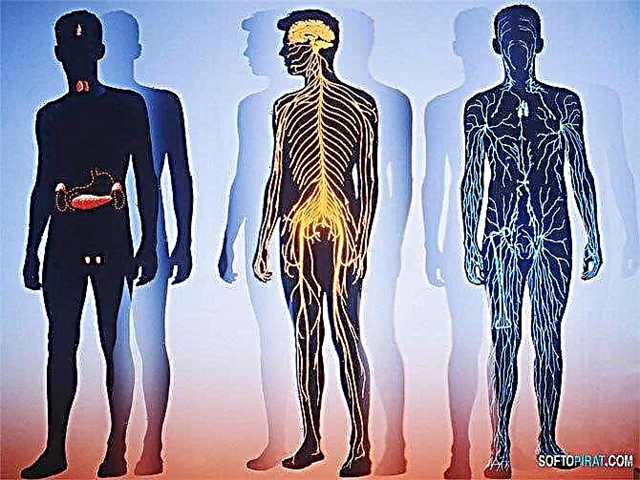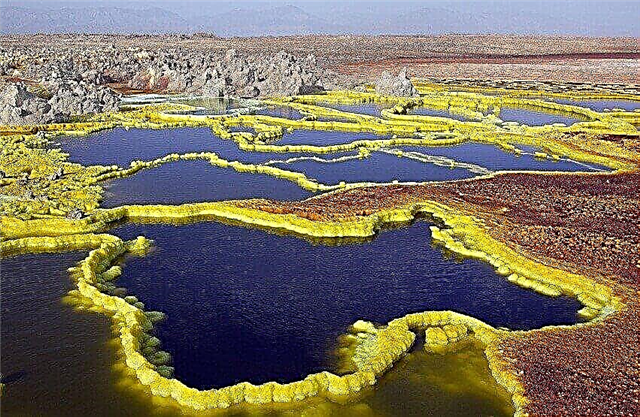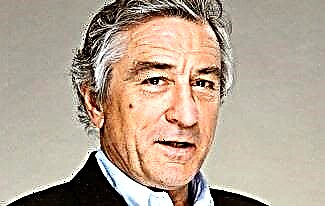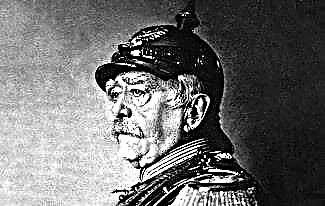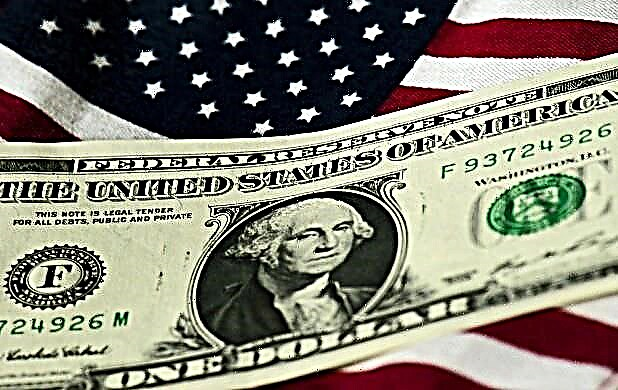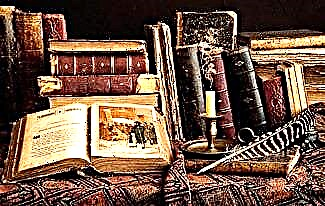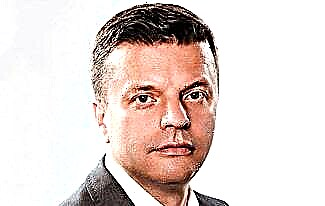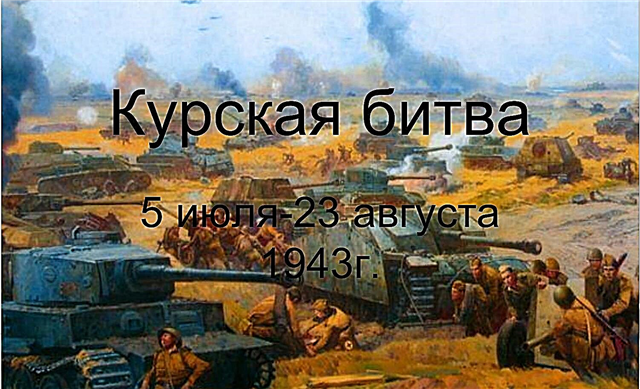Henry Alfred Kissinger (birth name - Heinz Alfred Kissinger; born in 1923) is an American statesman, diplomat, and expert in international relations.
U.S. National Security Advisor (1969-1975) and U.S. Secretary of State (1973-1977). Laureate of the Nobel Peace Prize.

Kissinger took first place in the ranking of the TOP-100 leading intellectuals in the world in terms of the number of mentions in the media, compiled by Chicago judge Richard Posner.
There are many interesting facts in Kissinger's biography, which we will talk about in this article.
So, before you is a short biography of Henry Kissinger.
Biography of Kissinger
Henry Kissinger was born on May 27, 1923 in the German city of Fürth. He grew up and was raised in a Jewish religious family. His father, Louis, was a school teacher, and his mother, Paula Stern, was engaged in housekeeping and raising children. He had a younger brother, Walter.
Childhood and youth
When Henry was about 15 years old, he and his family emigrated to the United States, fearing persecution by the Nazis. It is worth noting that it was the mother who insisted on leaving Germany.
As it turned out later, the relatives of the Kissingers who remained in Germany will be destroyed during the Holocaust. Having arrived in America, the family settled in Manhattan. After studying for a year at a local school, Henry decided to transfer to the evening department, as he was able to find a job at a company where shaving brushes were produced.
Having received a certificate, Kissinger became a student at the local City College, where he mastered the specialty of an accountant. At the height of World War II (1939-1945), a 20-year-old boy was drafted into service.
As a result, Henry went to the front without completing his studies. During his military training, he demonstrated high intelligence and tactical thinking. His command of the German language helped him to carry out a number of serious intelligence operations.
In addition, Kissinger proved to be a brave soldier who participated in difficult battles. For his services, he was awarded the rank of sergeant. While serving in counterintelligence, he was able to track down a number of Gestapo officers and identify many saboteurs, for which he was awarded a bronze star.
In June 1945, Henry Kissinger was promoted to the rank of unit commander. The following year, he was assigned to teach at the School of Intelligence, where he worked for another year.
After completing his military service, Kissinger entered Harvard College, subsequently becoming a Bachelor of Arts. An interesting fact is that the student's thesis - "The Meaning of History", took 388 pages and was recognized as the most voluminous dissertation in the history of the college.
During the biography of 1952-1954. Henry earned his M.A. and Ph.D. from Harvard University.
Career
As a student, Kissinger was worried about US foreign policy. This led to the fact that he organized a discussion seminar at the university.
It was attended by young leaders from European countries and America, who expressed anti-communist ideas and called for strengthening the position of the United States on the world stage. It is curious that such seminars were regularly held over the next 20 years.
The talented student became interested in the CIA, which provided Kissinger with financial assistance. After graduating from university, he began teaching.
Soon Henry was elected to the Chair of Government. During those years he was involved in the development of the Defense Research Program. It was intended to advise leading military officials and officials.

Kissinger was the director of this program from 1958 to 1971. At the same time, he was entrusted with the post of advisor to the Operations Coordination Committee. In addition, he served on the Council for Nuclear Weapons Safety Research, being one of the most authoritative experts in this field.
A consequence of his work in the National Security Committee was the book "Nuclear Weapons and Foreign Policy", which brought Henry Kissinger great popularity. It should be noted that he was opposed to any massive threats.
In the late 50s, the Center for International Relations was opened, the students of which were potential politicians. Henry worked here for about 2 years as a deputy manager. A few years later, the program formed the basis for the formation of NATO.
Politics
In big politics, Henry Kissinger proved to be a real professional, whose opinion was listened to by the Governor of New York Nelson Rockefeller, as well as Presidents Eisenhower, Kennedy and Johnson.
In addition, the man advised members of the Joint Committee, the US National Security Council and the US Arms Control and Disarmament Agency. When Richard Nixon became American President, he made Henry his right-hand man in national security.

Kissinger also served on the board of the Rockefeller Brothers Foundation, serving on the board of the Chase Manhattan Bank. The diplomat's key achievement is considered to be the establishment of relations between the three superpowers - the USA, the USSR and the PRC.
It is worth noting that China managed to some extent to mitigate the nuclear confrontation between America and the Soviet Union. It was under Henry Kissinger that an agreement was signed between the heads of the USSR and the USA regarding the reduction of strategic weapons.
Henry proved himself to be a peacekeeper during the conflict between Palestine and Israel in 1968 and 1973. He made every effort to end the US-Vietnam conflict, for which he was awarded the Nobel Peace Prize (1973).
In subsequent years, Kissinger was busy with issues related to the establishment of relations in different countries. As a talented diplomat, he was able to resolve a number of controversial issues that contributed to disarmament.
Henry's efforts led to the creation of an anti-Soviet American-Chinese alliance, which further strengthened America's position in the international arena. An interesting fact is that in the Chinese he saw a much greater threat to his country than in the Russians.
In subsequent years of his biography, Kissinger was in the presidential administration as Secretary of State under both Richard Nixon and Gerald Ford. He left the civil service only in 1977.
The knowledge and experience of the diplomat was soon required by Ronald Reagan and George W. Bush, who sought to find mutual understanding with Mikhail Gorbachev.
After resignation
At the end of 2001, for 2.5 weeks, Henry Kissinger headed the Commission of Inquiry on the September 11, 2001 terrorist attacks. In 2007, together with other colleagues, he signed a letter urging the US Congress not to recognize the Armenian genocide.
Henry Kissinger is the author of many books and articles on the Cold War, capitalism, communism and geopolitical issues. According to him, the achievement of peace on the planet will be achieved through the development of democracy in all states of the world.
At the beginning of the 21st century, many documents were declassified showing that Henry was involved in organizing the Condor special operation, during which opposition officials from South American countries were eliminated. Among other things, this led to the establishment of the Pinochet dictatorship in Chile.
Personal life
Kissinger's first wife was Ann Fleicher. In this marriage, the couple had a boy, David, and a girl, Elizabeth. After 15 years of marriage, the couple decided to divorce in 1964.
Ten years later, Henry married Nancy Maginness, who had previously worked for about 15 years in the consulting company of her future husband. Today, the couple live in a private mansion in Connecticut.
Henry Kissinger today
The diplomat continues to advise high-ranking officials. He is an honorary member of the renowned Bilderberg Club. In 2016, Kissinger was admitted to the Russian Academy of Sciences.
After the Russian Federation annexed Crimea, Henry condemned Putin's actions, urging him to recognize Ukraine's sovereignty.
Kissinger Photos







